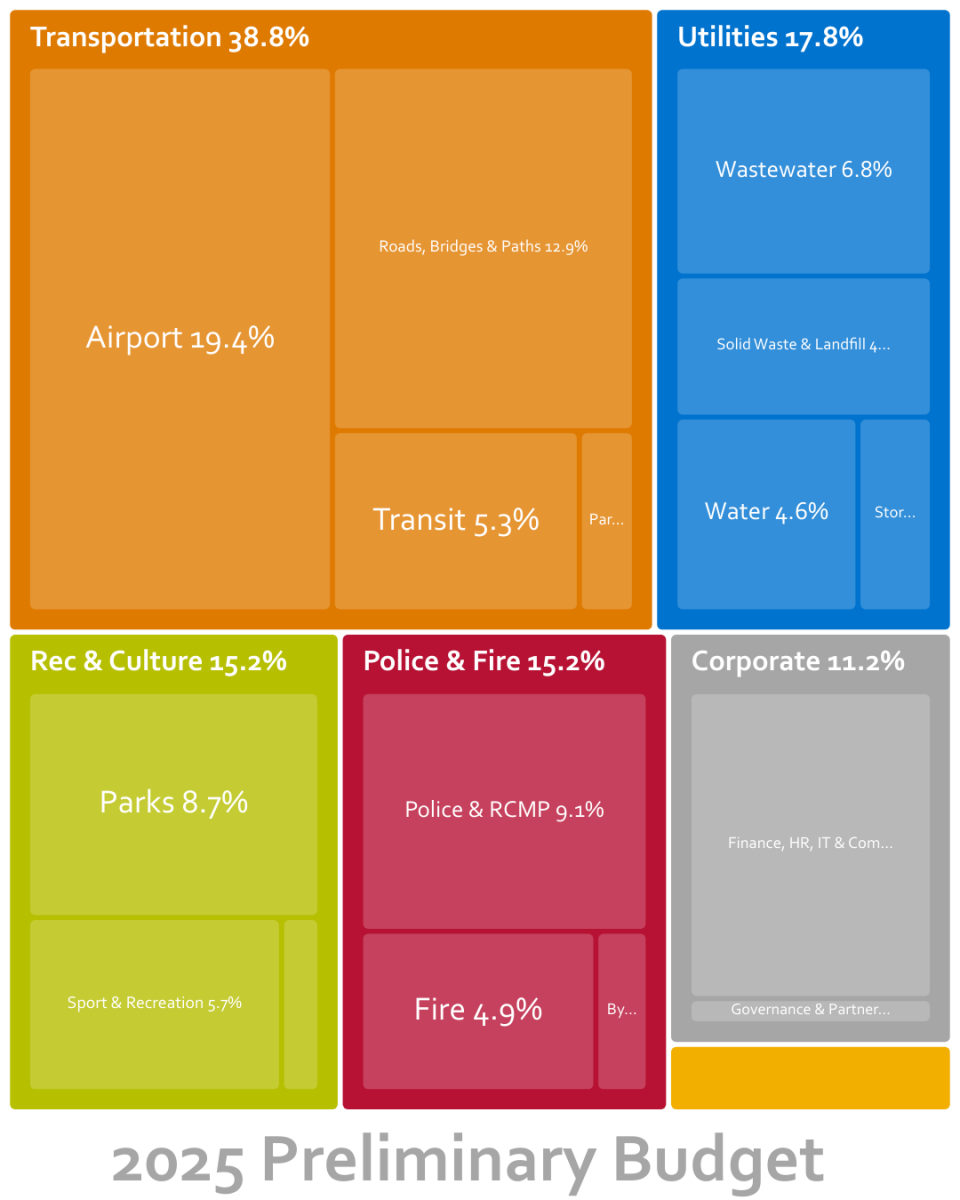City budget
Our City Budget
We’re building the City of the Future with stable taxes and smart investments.
As one of Canada's fastest growing communities, Kelowna is in a strong financial position. We boast one of the lowest tax demand increases in the province, healthy investments in capital projects, and an annual budget of about $900M—all while delivering services that truly matter to our residents. Our budget is the annual blueprint that makes it all possible.
See the Annual Financial Cycle for key dates.
We spend on things that matter
We're taxpayers too, so we spend it like we earned it. Transportation and Utilities account for more than half our 2025 Preliminary Budget, while Corporate services—regarded as the cost of government—makes up 11 per cent.
Click the infographic to explore the budget.
Low taxes are no accident
Kelowna has one of the lowest tax increases in the province—by design. Each year, City Council and leaders make tough choices to balance spending between existing services, new or enhanced services, or big capital projects, all while keeping property taxes reasonable and the tax increase below 5 per cent. See how we compare with towns and cities across the province.
Compare Taxes
Only 1 in 4 dollars comes from taxes
Minimizing our reliance on taxes isn’t just good governance, it’s a corporate priority. More than 75 per cent of our budget comes from sources other than taxes—like user fees, utility service charges, developer contributions, grants and reserves. See how we've increased non-tax revenues through program cost recovery and other approaches.
See Revenue Sources
Over 40% of our budget is big capital projects
Although we plan our budget on an annual basis, we're making long-term investments to keep up with the city's rapid growth. Capital projects support transportation, drainage and wildfire mitigation, public safety, clean drinking water, parks and recreation, and so much more.
Capital Plan Current Projects
Meet the people behind the services
Ride with Us
City staff deliver essential everyday services. Come along for the ride and see our City at Work.
Meet the Experts
Ever wonder how the City takes care of roads, parks, buildings and other assets? Meet the experts.
Award-Winning Budget
For 23 years in a row, the City of Kelowna has been presented with the Distinguished Budget Presentation Award by the Government Finance Officers Association. We've got the next one covered too.
Plans Behind the Budget
Our budgets are informed by our community vision, Council priorities, and strategies like the Official Community Plan and Transportation Master Plan. See how these plans work together.
Budgeting is a Process
Our annual budget process transforms operating and capital funding requests into real services and projects. Explore key dates in our Annual Financial Cycle and see how we balance wants and needs in this video.
Our Performance is Measurable
The quality of our services matters. Look inside our 2025 Budget to see performance indicators by service area. Plus we're working with partners to compare performance across towns and cities.




